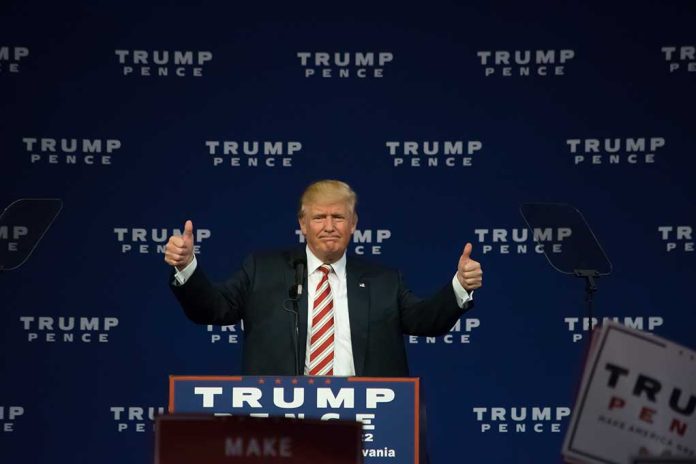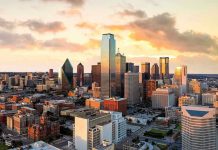
President Trump has halted all U.S. assistance to South Africa and opened America’s doors to white Afrikaner farmers as refugees after confronting President Cyril Ramaphosa with evidence of what he calls a “genocide” against white farmers in the African nation.
Key Takeaways
- President Trump confronted South African President Ramaphosa with videos and evidence of what he claims is persecution of white Afrikaner farmers in South Africa.
- Trump has cut all U.S. assistance to South Africa and welcomed white South African farmers to America as refugees, citing systematic killings and land seizures.
- Ramaphosa firmly denied Trump’s accusations, stating “that is not government policy” and claiming violent crime affects all South Africans regardless of race.
- The controversy highlights stark differences in refugee admission policies and raises questions about the treatment of white minority farmers in post-apartheid South Africa.
- Despite the confrontation, Ramaphosa claimed the visit was successful for trade and investment discussions between the two nations.
Tense White House Confrontation
The diplomatic meeting at the White House quickly became contentious when President Trump played videos showing what he described as evidence of violence against white farmers in South Africa. In a dramatic moment, Trump instructed aides to “Turn the lights down and just put this on,” before showing footage of far-left opposition leader Julius Malema chanting a controversial anti-apartheid song with lyrics that translate to “kill the farmer.” The presentation included newspaper articles documenting killings in South Africa, with Trump emphasizing cases involving white farmers.
What began as a potentially routine diplomatic visit transformed into a stark confrontation over allegations that white Afrikaners are being systematically targeted in South Africa. Trump displayed articles and videos depicting what he described as “death, death, death, horrible death” while asserting that white farmers are fleeing the country due to violence and government policies that allegedly strip them of their land.
“People are fleeing South Africa for their own safety. Their land is being confiscated and in many cases they’re being killed,” Said Donald Trump, President of the United States.
Refugee Policy and Aid Restrictions
In a significant policy shift, President Trump has issued an executive order cutting funding to South Africa while extending refugee status to white South African farmers seeking to relocate to the United States. The decision represents a dramatic change in America’s approach to refugee admissions, prioritizing a group that Trump contends faces genuine persecution. The administration has cited reports that thousands of white Afrikaners have been forced to flee their homeland due to targeted violence and discriminatory land policies.
Trump’s comments during the meeting highlighted his belief that white South Africans are being driven from their country, stating “You take a look at Australia, they’re being inundated and we’re being inundated with people that want to get out.” This claim directly challenges the narrative that has dominated refugee policy discussions in recent years, which has typically focused on migrants from Central America, the Middle East, and Africa.
“We are completely opposed to that, that is not government policy and our government policy is completely, completely against what he was saying,” Said Cyril Ramaphosa, President of South Africa.
South African Denials and Historical Context
President Ramaphosa forcefully rejected Trump’s characterization of the situation in South Africa. When directly accused by Trump of taking “people’s land away from them,” Ramaphosa responded with a simple but firm “We have not.” The South African president later emphasized to reporters that the issues Trump raised are “not government policy” and attempted to downplay the confrontation, stating “You wanted to see drama and something really big happening. And I’m sorry that we disappointed you somewhat when it comes to that.”
The debate over the treatment of white farmers in South Africa occurs against the backdrop of the country’s complex racial history. South Africa remains one of the world’s most unequal societies nearly 30 years after the end of apartheid, with significant economic disparities between racial groups. While the South African government and some experts maintain there is no targeted campaign against whites, conservative media outlets have documented numerous violent attacks on white-owned farms and controversial land redistribution policies that have alarmed property rights advocates.
“You’re taking people’s land away from them” Said Donald Trump, President of the United States.
Moving Forward
Despite the tense exchange over white farmers, both leaders indicated that other aspects of the bilateral relationship would continue to develop. South Africa is reportedly considering offering Elon Musk’s Starlink satellite internet service operating rights in the country, a move that could strengthen technological and economic ties between the nations. Ramaphosa claimed the visit was successful for trade and investment discussions, suggesting that pragmatic cooperation may continue despite fundamental disagreements over South Africa’s domestic policies.
President Trump’s willingness to confront a foreign leader directly on what he views as human rights violations against a minority group demonstrates his commitment to addressing persecution regardless of whether it fits conventional political narratives. By extending refugee status to white South African farmers and confronting President Ramaphosa with evidence of violence, Trump has signaled that America’s foreign policy and refugee system will operate based on actual conditions on the ground rather than politically expedient narratives about who deserves protection.



